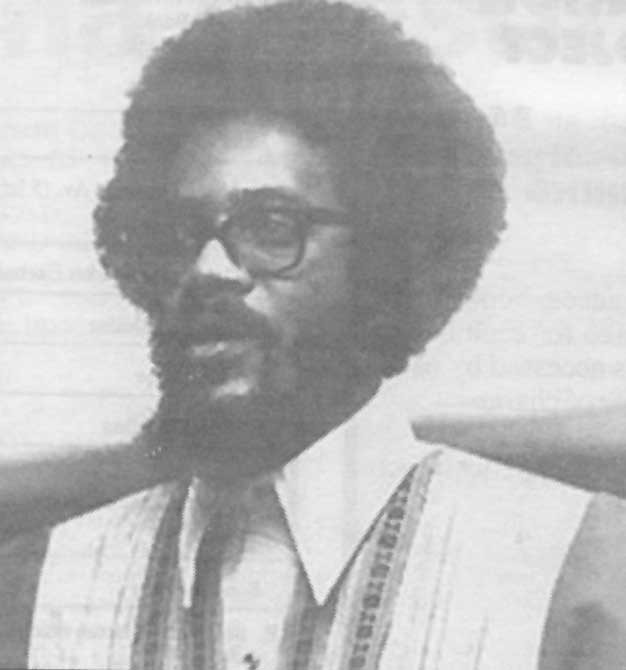The Justice for Walter Rodney Committee yesterday said that now that President David Granger has commented on the findings of the report into the death of Walter Rodney it was incumbent upon him to release it to the public.
The committee which had been closely following the Commission of Inquiry (CoI) into Rodney’s death, chided the President for blasting the CoI on Wednesday for believing the evidence of a convict and asked whether in Granger’s view that “all hearsay is out of place or only if a convict is the witness”.
It also criticised the President over his remark that former Crime Chief Cecil `Skip’ Roberts was not allowed to testify before the CoI even though he had been brought to the country at taxpayers’ expense. The Committee said that it wished to remind the President that it was he who had curtailed the inquiry and thereby prevented the further taking of testimony.
Analysts say that Granger’s attack on the CoI report has to be seen in the context of the hostility of his party, the PNCR, to its work and also the historic contention from many sectors of society that it was the then PNC Leader and Prime Minister Forbes Burnham who had been behind Rodney’s killing.
A key finding of the CoI was that there was a conspiracy involving the Guyana Defence Force (GDF), the Guyana Police Force and others to kill Rodney and that Burnham had to be aware of it. The CoI report also contended that the army, police and others tried to cover the tracks of Rodney’s likely killer, then coastguardsman, Gregory Smith.
Analysts note that the CoI’s assigning of blame to the army in several areas would also put Granger on the defensive as he was a career soldier and rose to the rank of Brigadier of the GDF.
The full statement by the committee follows:
Statement to the Media and Public by the Justice for Walter Rodney Committee
Yesterday, February 24, President David Granger, in person, let the world know that he considered the Report of the Walter Rodney Presidential Commission of Inquiry established by his predecessor and continued by him to be “deeply flawed” and does not reflect “the truth.” Announcing that copies of the Report had been circulated but that he was unable to obtain the views of Cabinet as he had been traveling, the President indicated that he would challenge the report’s findings and “the circumstances under which that Report was conducted.”
The Justice for Walter Rodney Committee notes that the President is commenting on a Report that is yet to be released to the public. We wish to repeat our call on the President to release the Report to Dr. Rodney’s family, the lawyers representing all parties at the Inquiry and to the media. Indeed, now that the President has publicly pronounced on the Report, it is incumbent on him to release it to the public. Years from now new generations may find it strange that a government had hindered persons in search of information vital to them and the health of the society.

President Granger has faulted the Commission for letting in much hearsay, but in this regard he named only one witness whom he described as a “convict.” The Justice for Walter Rodney Committee hopes that the President in his next broadside at the still hidden Report will say whether all hearsay is out of place or only if a convict is the witness.
President Granger should also be reminded that it was no less a person than his current Attorney General, Mr. Basil Williams, who introduced to the Commission the most important piece of hearsay evidence: the book allegedly co-authored by army Sergeant Gregory Smith but published several years after his death. Under cross-examination, Smith’s sister and co-author was shattered when the book was exposed as a complete fabrication.
The President made reference to the fact that former Crime Chief “Skip” Roberts was not allowed to testify and former Army Head Norman McLean did not complete his testimony. We wish to remind President Granger that it was he who, despite the strenuous pleas of lawyers and the parties represented at the Commission, brought the Commission of Inquiry to an abrupt end. The President cannot have it both ways: he cannot stop the Inquiry and later, when the findings are adverse to his interest, lament the absence of their testimony.
President Granger, in claiming that the Commission did not give the “Guyana people what they deserve, that is to say what were the circumstances under which Dr. Rodney acquired a certain device and how that device came to be detonated” not only attempts to rewrite the Commission’s Terms of Reference but completely overlooks the expert evidence by a witness whose credibility and evidence were not affected even after extensive cross-examination by the team of attorneys representing his Party.
It is regrettable that the President has once again raised the issue of the cost of the Commission. Our Committee is on record as being sensitive to the instances of wastage surrounding the Inquiry, but we find it highly improper for the entire Inquiry to be measured in dollars and cents. We are moved to repeat the old saying – “Justice is more precious than gold.”
